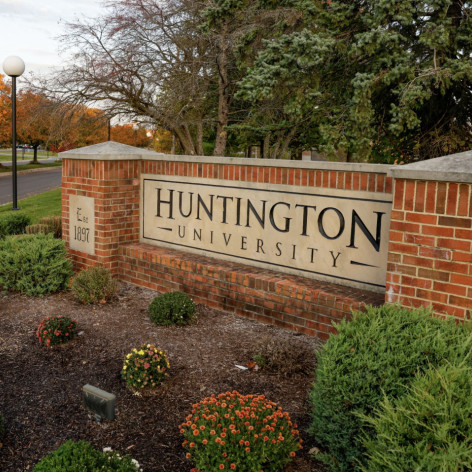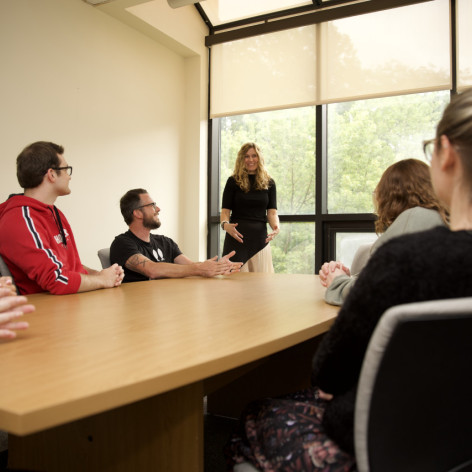Counseling program prepares students for life after graduation
FOR RELEASE: Tuesday, July 10, 2012
HUNTINGTON, IN In May 2011, 12 students completed Huntington's graduate counseling program, and within a few months, all had secured jobs in their desired fields of work.Rachel Draper, a 2011 graduate, was employed before she finished her final semester of the program.
"I think and speak so highly of the program at HU," Draper said. "It not only has prepared me for this field, but also for living my life."
In a part-time position with Life Matters Counseling (LMC), Draper spends one day doing individual counseling at the main office, and one day offering counseling for families in the schools.
"I did two semesters of interning with LMC and it was such a perfect fit," Draper said. "I was so thankful they offered me a permanent position."
Drew Clay, graduate admissions counselor, explains the benefits of the program. "Huntington University's graduate counseling program meets or exceeds all of Indiana's requirements for licensure as a Licensed Mental Health Counselor."
In the graduate counseling program, students complete 60 credit hours of in-class study, along with 1,000 hours of experiential learning, completed through one practicum and three internships.
HU's program is structured to provide extensive supervision, more than the state requires. This encourages greater faculty-student interaction and more in-depth case review, preparing students more fully for careers after graduation.
Clay considers Dr. Jerry Davis, the director of the graduate counseling program and professor of counseling, a key figure in students' Huntington experience.
"Working with faculty members like Dr. Davis, who has over 20 years of experience as a counselor and educator, students receive excellent feedback and suggestions for their continued growth as counseling professionals," Clay says.
Another benefit to the graduate counseling program is the breadth of theoretical training students receive, an advanced preparation that Clay says gives graduates an advantage in working with clients in realms beyond symptom relief.
"In addition to training students in cognitive-behavioral and symptom-focused approaches, we equip them to work with schema-focused, experiential, emotion-focused, and psychodynamic models," Clay says. "We also provide significant training in diagnosing personality disorders, which other master's programs often neglect."
Huntington's graduate counseling program prepares student for the future, academically professionally, and personally. Draper reflects, "Through the classes and work we did, I learned about areas of myself that need growth and concentration. I feel I am not only able to become an effective counselor, but a better wife, mother, friend, and most of all, worker for the Kingdom."



